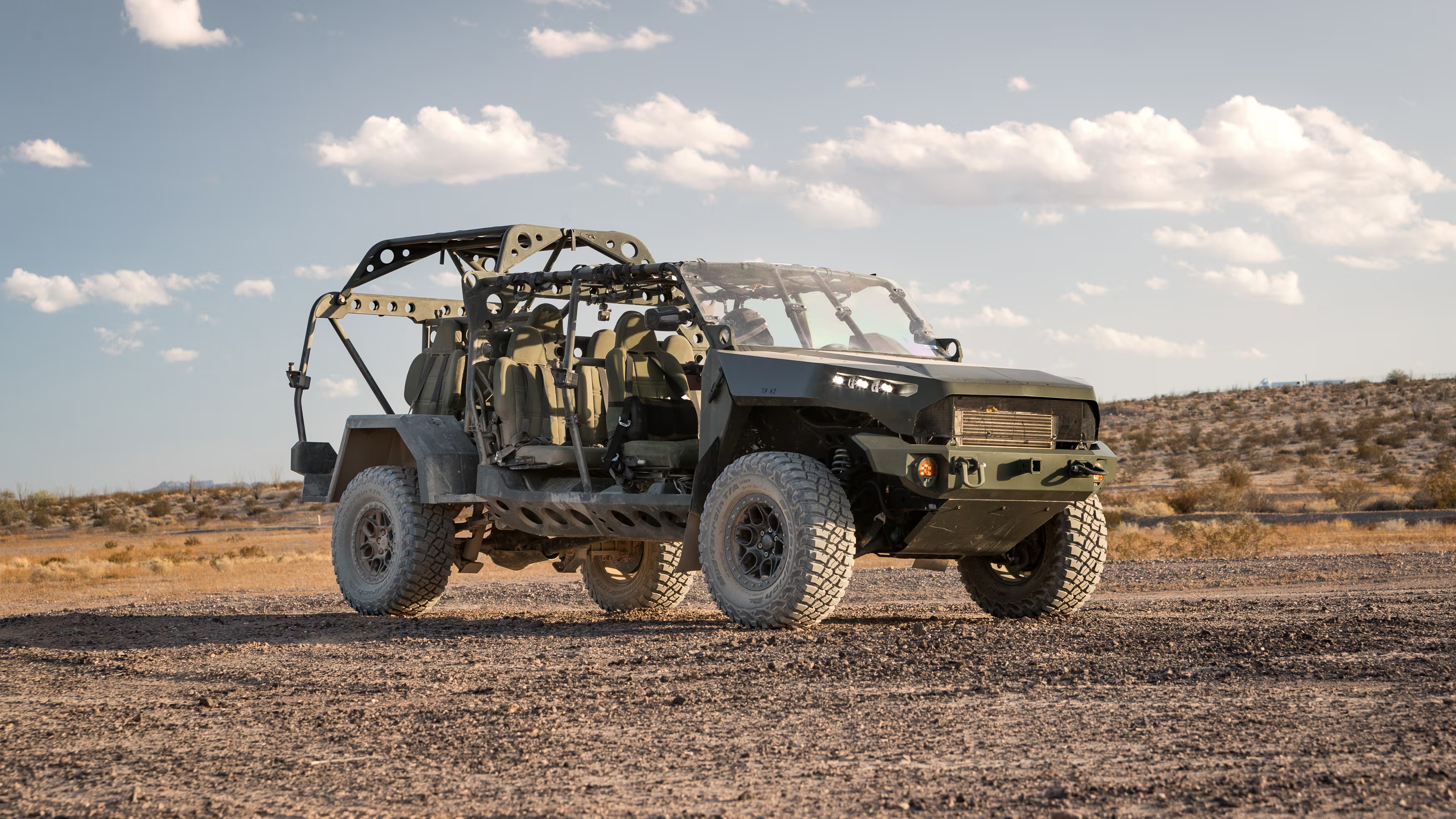WASHINGTON — The Army is preparing to make a full-rate production decision this spring on the Infantry Squad Vehicle after testing the fixes and improvements it made to address prior issues.
In 2020, General Motors won the contract to build the ISV, designed for easy transport to operational environments, following developmental testing of three vendors’ submissions. The company is working under a $214.3 million contract to produce 649 vehicles by the end of FY24.
A year ago, the Pentagon’s chief weapons tester slammed the Army’s new General Motors Defense-manufactured ISV in an annual report, citing the troop carrier’s vulnerability and uncomfortable ride.
The service told Defense News at the time it was working to fix issues that cropped up in initial operational testing, including that the ISV did not meet the requirement to be able to travel 1,200 mean miles between operational mission failure, also flagged by the weapons tester’s most recent report.
The 2020 and 2021 annual weapons testing report noted additional troubles, including steering problems, bent seat frames, engine cracks and overheating.
According to the 2022 annual report, released last month, the Army began new reliability compliance testing last summer to evaluate its fixes for the issues identified during developmental and operational testing.
The Army’s product director for ground mobility systems at the Program Executive Office Combat Support and Combat Service Support, John Hufstedler, told Defense News in a statement the new reliability testing wrapped up in January.
Part of that testing included driving the ISV for 5,000 miles over varying terrain and speeds, he said, and the service is evaluating whether the ISV complied with the requirement for meantime between operational mission failure.
The service also conducted evaluation and testing using vehicles with the corrective modifications, in July 2022, to reassess the vehicle’s ability to handle “low velocity airdrop operations and dual rail airdrop operations,” through simulations, which included driving the vehicles 30 miles after dropping across roads and trails, the test report states.
“Based on the results of the simulations, the Army determined that the corrective modifications do not impact airdrop and the ISV was recertified in October 2022,” Hufstedler said.
The Army hasn’t conducted live airdrop testing of the new version of the vehicles, but it has plans to align that with unit training scheduled for November 2023.
Now, the Army said it’s on track to decide in March or April whether to move the ISV into full-rate production.
Jen Judson is an award-winning journalist covering land warfare for Defense News. She has also worked for Politico and Inside Defense. She holds a Master of Science degree in journalism from Boston University and a Bachelor of Arts degree from Kenyon College.







